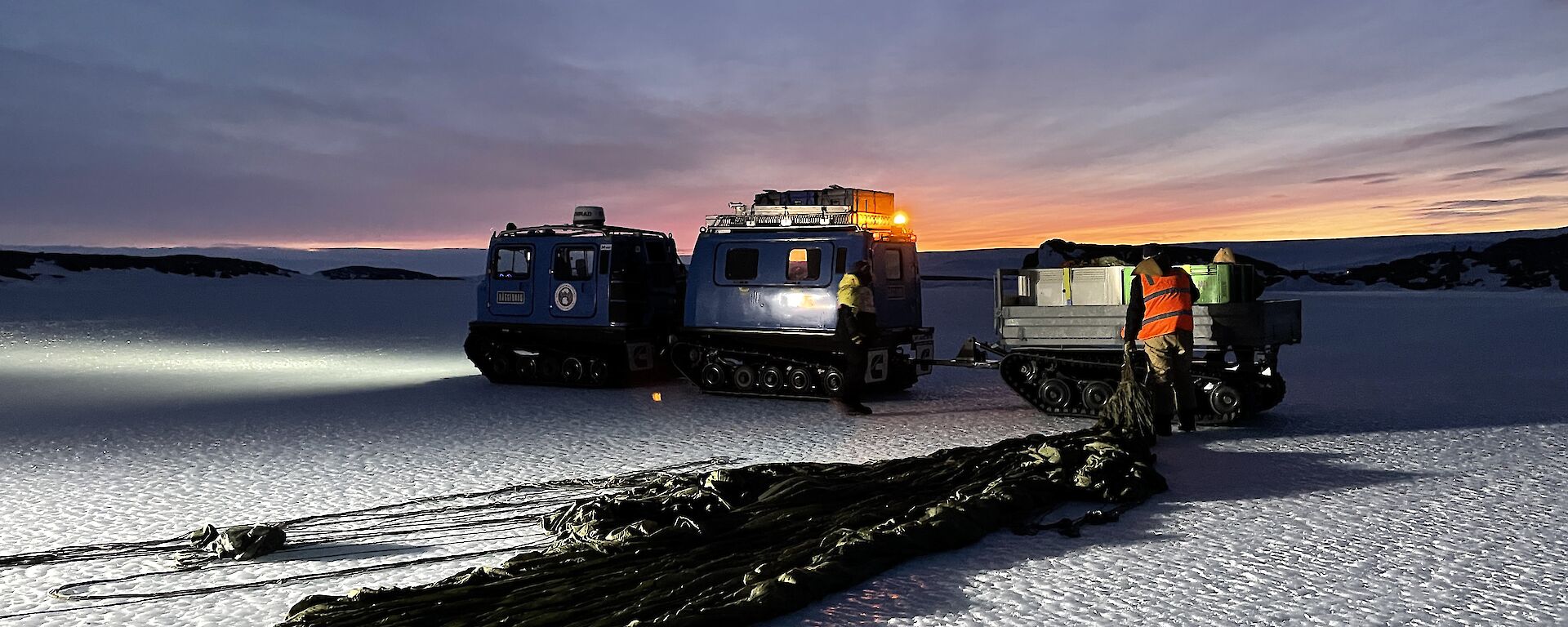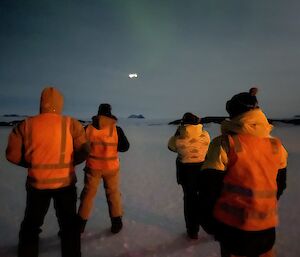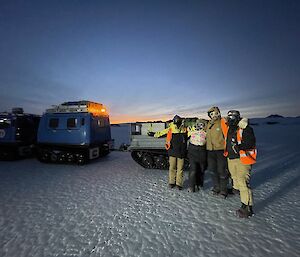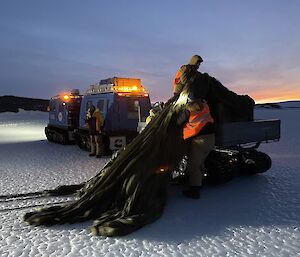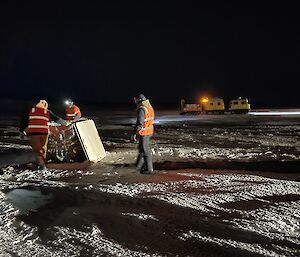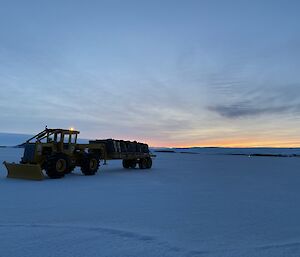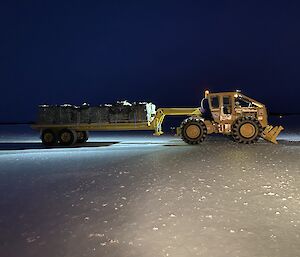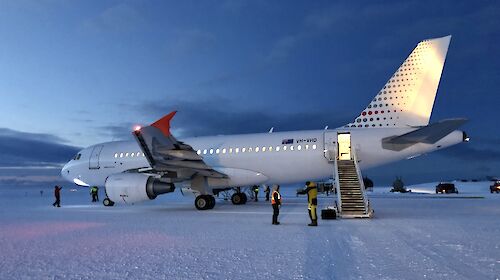Australian Antarctic Division General Manager Operations and Safety Charlton Clark said the mammoth operation was required after thick sea ice prevented a full resupply at the station last summer.
“This aerial delivery of 23 loads of essential cargo, weighing more than nine and a half thousand kilograms will now support the station until our next resupply mission,” Mr Clark said.
“It truly was an amazing undertaking, involving considerable challenges with both weather and logistics and I’m thrilled it’s been a success.”
The mission involved teams of ADF and AAD people across four states including Queensland, New South Wales, Tasmania and Western Australia.
Australian Defence Force (ADF) personnel spent a week carefully constructing the loads at the AAD biosecurity centre in Hobart, before it was delivered to the flight crew, arriving in Tasmania from RAAF Amberley in Queensland.
The flight then departed Perth International Airport early Thursday morning on a 15-hour round trip, travelling five thousand kilometres over the Southern Ocean before reaching the drop zone.
The C-17A Globemaster III was supported by a KC-30A Multi-Role Tanker Transport aircraft which provided air-to-air fuelling to enable to return journey.
“The real success in this mission is seeing vital equipment and medical supplies delivered to where it needs to be,” Mr Clark said.
“There was also mail, fresh food and gifts from loved ones in Australia, it really was like Christmas arriving in August for Mawson.”
Expeditioners recovered the cargo and parachutes off the ice in low light, strong winds as well as challenging minus -25 degree temperatures.
Mawson research Station Leader Jason Ahrens said efforts were made to ensure the airdrop caused minimal disruption to wildlife.
“We had expeditioners acting as spotters to make sure rogue penguins and seals didn’t unknowingly cross into the drop zone,” Mr Ahrens said.
“The Mawson team are really excited to receive these much needed supplies and a little slice of home.”
More than three months of planning went into the mission, with both ADF and AAD personnel abiding by COVID-19 protocols.
To mitigate the risk of COVID-19 transmission, ADF personnel arriving in Tasmania were required to spend two weeks in isolation and provide a negative COVID-19 test, and the cargo was sanitised.
Strict biosecurity measures were also followed, with the parachutes washed to prevent unwanted foreign material entering the frozen continent.
The Commander Australian Contingent Operation SOUTHERN DISCOVERY, Wing Commander Dion Wright said that this airdrop demonstrated the enduring partnership between the two organisations.
“For the ADF, Operation Southern Discovery is a really important part of the logistical puzzle in Antarctica, and provides essential support to the Australian Antarctic Program,” Wing Commander Wright said.
Mawson is Australia’s most remote research station, with 18 expeditioners currently wintering at the site.

